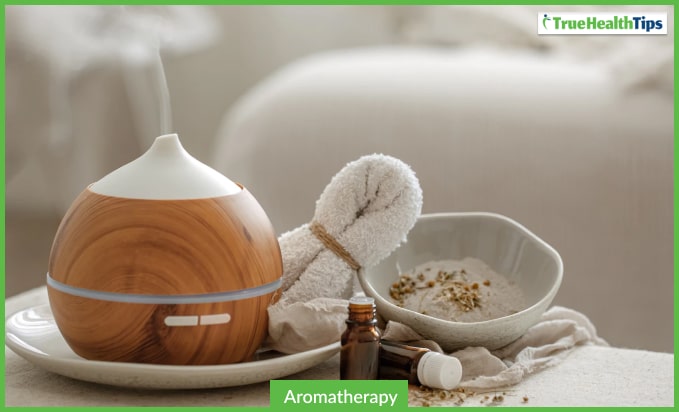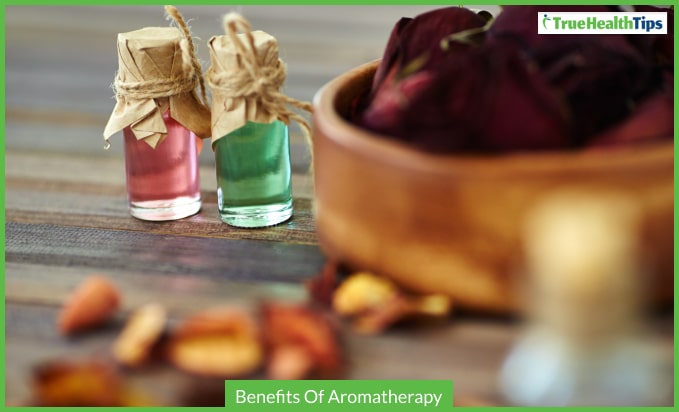
Aromatherapy is a decade-old treatment method that has been used for thousands of years. Even as of this day, aromatherapy is very popular.
The use of aromatic oils and plant extracts helps enlighten the patients’ moods. According to many, this kind of therapy using essential oils helps patients recover from various physical and mental discomfort and illness.
However, there is not much scientific research proving the effectiveness of therapy using essential oils and aromatic materials. But, some studies show it to be beneficial for –
- Relieving stress and depression
- Improving health conditions
- Improving sleep
- Help get a better lifestyle.
The aromatherapists use several aromatic essential oils and other materials. For instance, they use– lavender oil, tea tree essential oil, rosemary essential oil, and so much more.
But does aromatherapy really help? Is it worth it? What are the benefits of aromatherapy?
If you need answers to these questions, keep reading this article.
What Is Aromatherapy?

Unlike cryotherapy, aromatherapy is a kind of treatment used for thousands of years. In such therapy, essential oils are used for therapeutic benefits. When someone inhales the aroma of the essential oil, the scent molecules travel to the brain from the olfactory nerves. The scent directly affects the amygdala and relieves the tension and stress you might have.
Your skin can also absorb the essential oils. As a part of the therapy, the massage therapist may add some essential oils to the wintergreen and massage your body. Massaging your body with essential oils helps you relax the muscles and enables you to improve your skin’s health.
What Is Essential Oil?
You need essential oil for aromatherapy; they are necessary for these therapeutic treatments. Essential oils are basically extracted from different parts of plants. The leaves, flowers, barks, and fruits of various plants are pressed or steamed to create essential oils.
You may need several pounds of a plant to create a few ounces of essential oils. These oils are very rich in nutritional elements for the skin and hair, and they carry the scent of the plant. You cannot directly use any essential oil for external use. Instead, you need to mix them with a carrier oil and then apply them to your body.
Benefits Of Aromatherapy

There are several benefits of aromatherapy. You can gain these benefits through topical use and inhalation. You can evaporate the essential oil using a diffuser container, use it with spray, or breathe it in with a steamed bath. In addition, there are many respiratory and psychological benefits of using aromatherapy.
When applied topically, the essential oils can improve blood circulation and improve the health of the skin and the hair follicles on your head.
Here are some benefits of aromatherapy –
Nausea
Aromatherapy helps reduce nausea and frees your head.
Body Aches
The topical use of essential oils for aromatherapy purposes has beneficial effects on your body and muscles. When used along with carrier oils, aromatherapeutic body massage can help reduce the pain and ache of your muscles.
Stress And Anxiety
aromatherapeutic treatment has a positive effect on your psychological state. Therapists recommend it for managing stress and anxiety and reducing depression.
Fatigue And Insomnia
You may feel fatigued and insomniac; aromatherapy presents itself as a solution to counter these problems. In addition, therapy using essential oil can also help relieve headaches.
Circulatory Problems
Topical use of essential oils and aromatherapy can help you reduce many blood circulatory problems. Once applied with a carrier oil and massaged on your body, you help you improve blood circulation in your body.
Menopausal And Menstrual Problems
Aromatherapy helps ease menopausal and menstrual problems.
Aside from these benefits, aromatic therapy helps treat alopecia, agitation, and respiratory problems and stimulates your brain. In addition, according to many, this kind of therapy helps digestive issues, toothaches, and a wide range of other health-related problems.
How To Use Essential Oils?
Using essential oils is simple and versatile. Here are common methods for incorporating them into your daily routine:
1. Diffusion: Place a few drops of your favorite essential oil in a diffuser. It releases a fine mist that fills the room with a pleasant scent, creating a calming or uplifting atmosphere. Great for relaxation and mood enhancement.
2. Topical Application: Dilute essential oils with a carrier oil (like coconut or jojoba oil) to avoid skin irritation. Apply the diluted mixture to the skin for massage or to target specific areas for relief from muscle tension or skincare benefits.
3. Steam Inhalation: Add a few drops of essential oil to a bowl of hot water. Lean over the bowl, cover your head with a towel, and inhale the steam. This method helps with respiratory issues and can clear congestion.
4. Baths: Mix a few drops of essential oil with a carrier oil or Epsom salt and add it to your bathwater. This provides a relaxing spa-like experience and can alleviate stress or muscle soreness.
5. Aromatherapy Jewelry: Special diffuser jewelry, like necklaces or bracelets, allows you to wear your favorite essential oil. The scent is released slowly throughout the day, promoting personal well-being.
6. Personal Inhalers: Portable inhalers with a cotton wick can hold essential oils. Inhale directly from the inhaler for mood support or as a quick energy boost.
7. Household Cleaning: Mix essential oils with water or vinegar for a natural and pleasant-smelling household cleaner. Certain oils like tea tree or lemon have antibacterial properties.
8. Linen and Room Sprays: Create your own linen or room sprays by combining essential oils with water in a spray bottle. Use them to freshen up linens, curtains, or the air in any room.Remember to use essential oils with caution, as they are highly concentrated. Start with a small amount and dilute when necessary, especially for skin application. It’s also a good idea to research each oil’s specific benefits and any potential contraindications to ensure safe use.
Is Aromatherapy Worth It?
There is no definitive study proving the effectiveness of aromatherapy. Scientifically, there is no proof that aromatherapy helps cure any disease.
However, according to the opinions of many therapists, there are certain health benefits. For instance,
- Aromatic therapy helps you improve your health conditions,
- Improves your respiratory system.
- Helps sleep better.
- Improves mental condition, reduces anxiety, stress,
How Does Aromatherapy Affect The Body?
Your body benefits from aromatic therapy in many ways. The benefits are mostly respiratory and psychological. Through aromatic therapy using essential oils, you improve respiratory disinfection. Decongestant and other psychological benefits are also there.
Does Aromatherapy Work?
There are many questions surrounding aromatic therapy. Does it work? Is it beneficial? There are certain benefits like improved sleep, a better respiratory system, improved condition of your olfactory nerves, reduced stress, muscle pain, and reduced level of stress, anxiety, and depression.
How Does Aromatherapy Calm You?
Through aromatherapy, you can send the soothing scent of the essential oils to your brain. When the aromatic scents reach your brain, you feel a sensation of calmness that helps you relax and lose tension.
Can Scents Reduce Stress?
Scents have a feel-good effect on your mood. The scents can do more than just make you feel attractive to others. They can help you lift your mood. Scents can make you feel calm and energize your mood. There is no scientific reason to confirm it, but scents can reduce your stress level.
Cautions And Myths About Aromatherapy:
Aromatherapy, while beneficial when used appropriately, comes with cautions and misconceptions that need clarification:
Cautions
1. Skin Sensitivity: Essential oils are highly concentrated and can cause skin irritation or allergic reactions. Always dilute oils in a carrier oil and perform a patch test before applying to a larger area of skin.
2. Medical Conditions: If you have underlying health conditions or are taking medications, consult with a healthcare provider before using essential oils.
Misconceptions
1. Cure-All: Aromatherapy is not a cure-all. It can support well-being and alleviate symptoms, but it should not replace medical treatment for serious illnesses.2. Ingestion: Ingesting essential oils is a controversial practice and can be dangerous without expert guidance. Many essential oils are toxic when consumed and should only be ingested under the supervision of a qualified aromatherapist.
Bottom Line
Aromatherapy is good for both your mind and your body. Many people who have taken it have confessed its benefits. However, if you are trying to relax your senses and energize yourself, this kind of therapy is more than you need.
I hope this article was helpful to you. If you have any further questions, you can ask them in the comment section.
Keep Reading:











